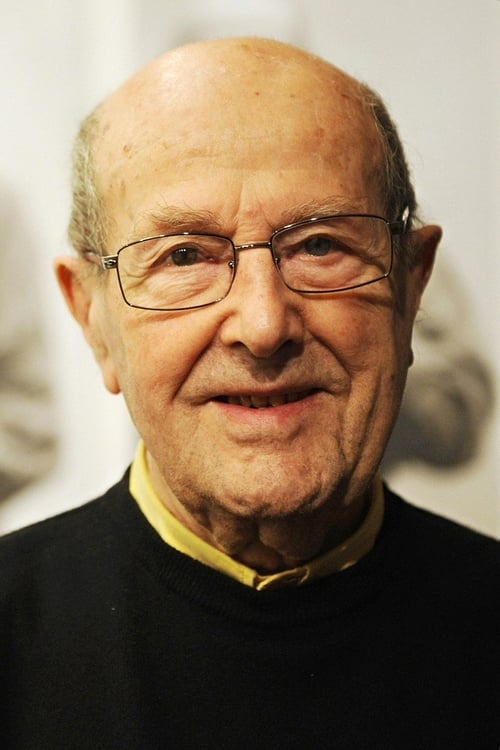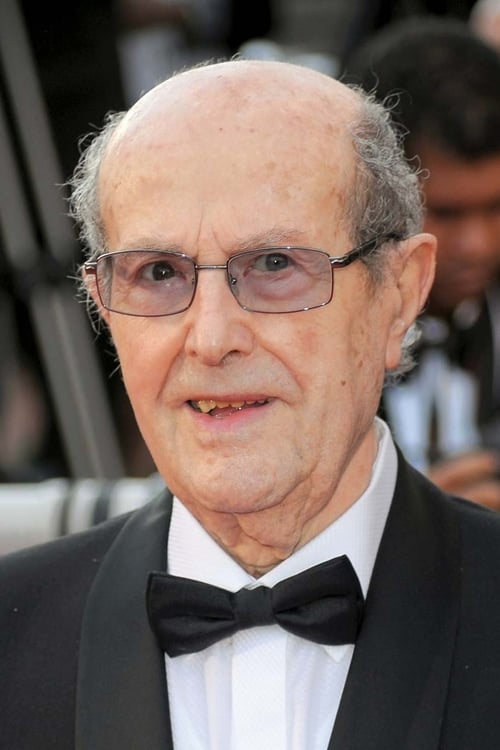
Director of Photography
Manoel de Oliveira's final work revisits one of his earliest films and celebrates a century of industrialization in Portugal.

Director
Manoel de Oliveira's final work revisits one of his earliest films and celebrates a century of industrialization in Portugal.

Editor
A long-hidden, personal doc about leaving a beloved house by the late, revered Portuguese director Manoel de Oliveira.

Screenplay
A long-hidden, personal doc about leaving a beloved house by the late, revered Portuguese director Manoel de Oliveira.

Director
A long-hidden, personal doc about leaving a beloved house by the late, revered Portuguese director Manoel de Oliveira.

Self
A long-hidden, personal doc about leaving a beloved house by the late, revered Portuguese director Manoel de Oliveira.
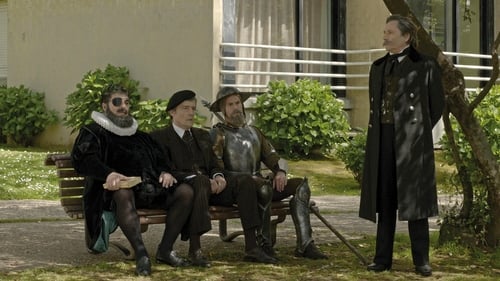
Screenplay
Don Quixote, Luís de Camões, Camilo Castelo Branco and Teixeira de Pascoaes meet in an eternal garden in the middle of a modern city and talk about life.

Director
Don Quixote, Luís de Camões, Camilo Castelo Branco and Teixeira de Pascoaes meet in an eternal garden in the middle of a modern city and talk about life.

Director
Every year the Viennale invites a famous director to produce a short film as the festival trailer. In 2014 the choice has fallen on the 105-year old Manoel de Oliveira.

Director
Thirteen filmmakers talk about Henri Langlois and their relationship with him.

Self
Thirteen filmmakers talk about Henri Langlois and their relationship with him.

Screenplay
Four voices and their visions of Guimarães, cradle city of the Portuguese nation and European Capital of Culture in 2012.

Director
Four voices and their visions of Guimarães, cradle city of the Portuguese nation and European Capital of Culture in 2012.

Director
An anthology film following different stories around the theme of invisibility in the modern world.

An exploration of the movie "The strange case of Angelica" and an understanding Manoel de Oliveira's cinema.

Screenplay
A group of tourists arrives to the historical center of Guimarães. The camera goes up over the shoulder of Alfonso Henriques' statue. The first king of Portugal, holding up his sword, demands respect. Nevertheless, from there we see how the group of tourists take over the place and sourround the Conqueror with their cameras.

Director
A group of tourists arrives to the historical center of Guimarães. The camera goes up over the shoulder of Alfonso Henriques' statue. The first king of Portugal, holding up his sword, demands respect. Nevertheless, from there we see how the group of tourists take over the place and sourround the Conqueror with their cameras.

Screenplay
Despite his age and general weariness, Gebo keeps on working as an accountant to provide for his family. He lives with his wife, Doroteia, and his daughter-in-law, Sofia, but it is the absence of João, son and husband, that worries them.Gebo seems to be hiding something, especially to Doroteia, who is anxiously waiting to see her son again. Sofia is also waiting for her husband to come home, and yet she fears him. All of a sudden, João arrives and everything changes.

Director
Despite his age and general weariness, Gebo keeps on working as an accountant to provide for his family. He lives with his wife, Doroteia, and his daughter-in-law, Sofia, but it is the absence of João, son and husband, that worries them.Gebo seems to be hiding something, especially to Doroteia, who is anxiously waiting to see her son again. Sofia is also waiting for her husband to come home, and yet she fears him. All of a sudden, João arrives and everything changes.

Self
Agnès Varda travels around the world to meet friends, artists and filmmakers for an expansive view of the global contemporary art scene.

Writer
A photographer, Isaac is asked by hotel owners to take portraits of their recently deceased daughter Angélica. When he looks at her through the lens of his camera, she appears to come back to life just for him. He instantly falls in love with her. From that moment, he will be haunted by Angélica day and night.

Director
A photographer, Isaac is asked by hotel owners to take portraits of their recently deceased daughter Angélica. When he looks at her through the lens of his camera, she appears to come back to life just for him. He instantly falls in love with her. From that moment, he will be haunted by Angélica day and night.

Writer
The characters from a historical piece of art come to life to discuss poignant themes such as war and world peace.

Director
The characters from a historical piece of art come to life to discuss poignant themes such as war and world peace.

Self
The Midnight Sun Film Festival is held every June in the Finnish village of Sodankylä beyond the arctic circle — where the sun never sets. Founded by Aki and Mika Kaurismäki along with Anssi Mänttäri and Peter von Bagh in 1985, the festival has played host to an international who’s who of directors and each day begins with a two-hour discussion. To mark the festival’s silver anniversary, festival director Peter von Bagh edited together highlights from these dialogues to create an epic four-part choral history of cinema drawn from the anecdotes, insights, and wisdom of his all-star cast: Coppola, Fuller, Forman, Chabrol, Corman, Demy, Kieslowski, Kiarostami, Varda, Oliveira, Erice, Rouch, Gilliam, Jancso — and 64 more. Ranging across innumerable topics (war, censorship, movie stars, formative influences, America, neorealism) these voices, many now passed away, engage in a personal dialogue across the years that’s by turns charming, profound, hilarious and moving.

Editor
ポルトガルの首都リスボンから南の保養地へ向かう列車の中で、青年のマカリオは、隣に座る見知らぬ婦人を相手に、自らの衝撃的な恋愛体験を物語り始める。叔父の経営する用品店で会計士として働いていた彼は、通りの向かいの家の窓辺にたたずむ美しい少女ルイザの姿を目にして、彼女に一目惚れ。彼女との結婚の承諾を叔父に求めたものの、断られた彼は、その後、数々の苦労を味わった末、ついに晴れて結婚の許しを得るのだが…。

Screenplay
ポルトガルの首都リスボンから南の保養地へ向かう列車の中で、青年のマカリオは、隣に座る見知らぬ婦人を相手に、自らの衝撃的な恋愛体験を物語り始める。叔父の経営する用品店で会計士として働いていた彼は、通りの向かいの家の窓辺にたたずむ美しい少女ルイザの姿を目にして、彼女に一目惚れ。彼女との結婚の承諾を叔父に求めたものの、断られた彼は、その後、数々の苦労を味わった末、ついに晴れて結婚の許しを得るのだが…。

Director
ポルトガルの首都リスボンから南の保養地へ向かう列車の中で、青年のマカリオは、隣に座る見知らぬ婦人を相手に、自らの衝撃的な恋愛体験を物語り始める。叔父の経営する用品店で会計士として働いていた彼は、通りの向かいの家の窓辺にたたずむ美しい少女ルイザの姿を目にして、彼女に一目惚れ。彼女との結婚の承諾を叔父に求めたものの、断られた彼は、その後、数々の苦労を味わった末、ついに晴れて結婚の許しを得るのだが…。

Himself
A tribute documentary to Manoel de Oliveira, on occasion of his 100th birthday.
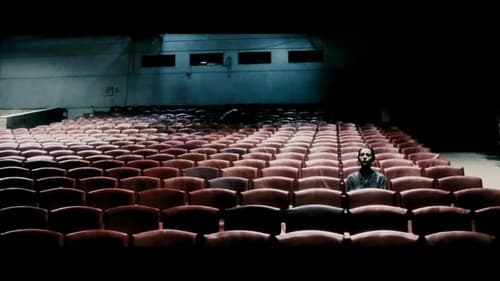
Writer
A collective film of 33 shorts directed by different directors about their feeling about cinema.

Director
A collective film of 33 shorts directed by different directors about their feeling about cinema.

Himself
Joáo Bénard da Costa, director of the Portuguese National Film Archives [deceased in 2009], interviews the dean of contemporaneous film directors [96-years-old then]. Two humanists of different philosophical backgrounds, both with their long, entire lives dedicated to culture in general (music, painting, literature) and to film in particular, discuss freely, sometimes haltingly, the director's power as a creator or a magician, the philosophy beyond particular scenes in classic movies, film technique, the importance of color, sound and music to films, art versus entertainment, and much more. Their talk takes place in a museum room, seating in front of "The Annunciation" (a 1510 oil painting by João Vaz, a Portuguese artist), which eventually leads to a discussion of 'Leonardo da Vinci', and the relationship between a trend-setter master and his disciples.

Screenplay
A true story of a doctor and his wife who went on a journey in order to prove that discoverer Christopher Columbus was in fact Portuguese. Inspired by the book "Cristóvão Colon Era Português".

Director
A true story of a doctor and his wife who went on a journey in order to prove that discoverer Christopher Columbus was in fact Portuguese. Inspired by the book "Cristóvão Colon Era Português".

Manuel Luciano (2007)
A true story of a doctor and his wife who went on a journey in order to prove that discoverer Christopher Columbus was in fact Portuguese. Inspired by the book "Cristóvão Colon Era Português".

Director
A silent film depicting a meeting between Nikita Khrushchev and Pope John XXIII is screened.

Writer
ある演奏会の会場で、かつての友人の妻で、今は未亡人となったセヴリーヌの姿を見かけたアンリ。後を追いかけるアンリだったが、セヴリーヌは彼を避けるようにタクシーに乗り込んでしまう。その後、アンリーはセヴリーヌがピラミッド広場の高級ホテルに宿泊していることを突き止めるが……。<ルイス・ブニュエル監督、カトリーヌ・ドヌーヴ主演による1960年代の傑作『昼顔』の登場人物たちの38年後を描いた話題作。巨匠マノエル・デ・オリヴェイエラが、昼間は娼婦となった裕福な家庭の貞淑な妻セヴリーヌと、彼女の秘密を知るアンリの偶然の再会を描く。ドヌーヴに代わりセヴリーヌを演じるのはビュル・オジエ。>

Director
ある演奏会の会場で、かつての友人の妻で、今は未亡人となったセヴリーヌの姿を見かけたアンリ。後を追いかけるアンリだったが、セヴリーヌは彼を避けるようにタクシーに乗り込んでしまう。その後、アンリーはセヴリーヌがピラミッド広場の高級ホテルに宿泊していることを突き止めるが……。<ルイス・ブニュエル監督、カトリーヌ・ドヌーヴ主演による1960年代の傑作『昼顔』の登場人物たちの38年後を描いた話題作。巨匠マノエル・デ・オリヴェイエラが、昼間は娼婦となった裕福な家庭の貞淑な妻セヴリーヌと、彼女の秘密を知るアンリの偶然の再会を描く。ドヌーヴに代わりセヴリーヌを演じるのはビュル・オジエ。>

Writer
Film about Calouste Gulbenkian, produced for the celebrations of the 50th anniversary of the Calouste Gulbenkian Foundation.

Director
Film about Calouste Gulbenkian, produced for the celebrations of the 50th anniversary of the Calouste Gulbenkian Foundation.

Himself
A 58 minute documentary about the life of João Bénard da Costa.
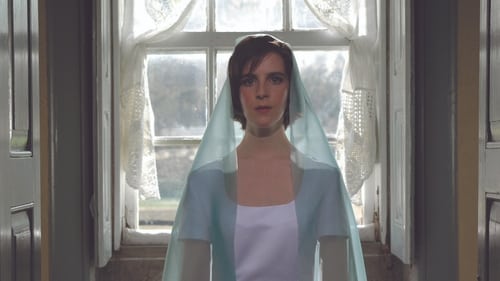
Writer
Luciano, fresh out of jail, was taken by his brother, Flórido, to serve in the home of wealthy Alfreda. He was surprised when she told him that her greatest desire was to see the Virgin Mary. Now comes this rich land owner with her sublime pretensions. Isn't it enough for her to have an Aston Martin and a Jaguar in the garage and ten different dresses per season? It was all professor Heschel's fault. Or someone else's. Anyway, to go beyond the promise is heresy. Alfreda said that she wouldn't rest until she saw the Virgin and made her some questions. Filipe Quinta, the Forger, says he has a solution. Meanwhile, Bahia, her husband, listens do music.

Director
Luciano, fresh out of jail, was taken by his brother, Flórido, to serve in the home of wealthy Alfreda. He was surprised when she told him that her greatest desire was to see the Virgin Mary. Now comes this rich land owner with her sublime pretensions. Isn't it enough for her to have an Aston Martin and a Jaguar in the garage and ten different dresses per season? It was all professor Heschel's fault. Or someone else's. Anyway, to go beyond the promise is heresy. Alfreda said that she wouldn't rest until she saw the Virgin and made her some questions. Filipe Quinta, the Forger, says he has a solution. Meanwhile, Bahia, her husband, listens do music.

A conversation between the filmmaker Manoel de Olivieira and the writer Agustina Bessa-Luís.

Himself (archive footage)
The newsreel series Jornal Português (1938-1951) was produced for the Secretariat of National Propaganda (SPN/SNI) by the "Portuguese Newsreel Society" (SPAC), under the technical supervision of António Lopes Ribeiro. It was conceived and employed as part of the propaganda machinery of Salazar's regime. Screened in cinema theatres prior to the main feature film, each issue of Jornal had approximately ten minutes in length and covered a variety of official government acts, national political news, major sports events and other assorted social and cultural affairs. Jornal Português is not only an indispensable document for the history of Estado Novo's propaganda, but also an unparalleled audiovisual archive of 1940s Portugal.

Art Direction
A satirical short film about technology.

Editor
A satirical short film about technology.

Screenplay
A satirical short film about technology.

Director
A satirical short film about technology.

Screenplay
Manoel de Oliveira directs José Régio's historical epic of religious and political power struggles. King Sebastião plans to make Portugal the world's Fifth Empire.

Director
Manoel de Oliveira directs José Régio's historical epic of religious and political power struggles. King Sebastião plans to make Portugal the world's Fifth Empire.
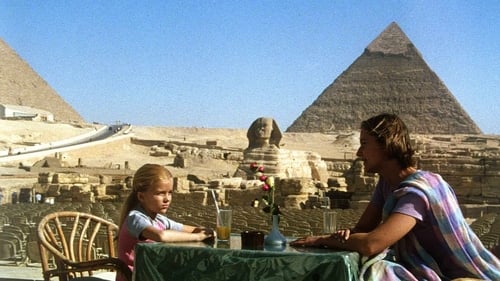
Writer
A meditation on civilization. July, 2001: friends wave as a cruise ship departs Lisbon for Mediterranean ports and the Indian Ocean. On board and on day trips in Marseilles, Pompeii, Athens, Istanbul, and Cairo, a professor tells her young daughter about myth, history, religion, and wars. Men approach her; she's cool, on her way to her husband in Bombay. After Cairo, for two evenings divided by a stop in Aden, the captain charms three successful, famous (and childless) women, who talk with wit and intellect, each understanding the others' native tongue, a European union. The captain asks mother and child to join them. He gives the girl a gift. Helena sings. Life can be sweet.

Director
A meditation on civilization. July, 2001: friends wave as a cruise ship departs Lisbon for Mediterranean ports and the Indian Ocean. On board and on day trips in Marseilles, Pompeii, Athens, Istanbul, and Cairo, a professor tells her young daughter about myth, history, religion, and wars. Men approach her; she's cool, on her way to her husband in Bombay. After Cairo, for two evenings divided by a stop in Aden, the captain charms three successful, famous (and childless) women, who talk with wit and intellect, each understanding the others' native tongue, a European union. The captain asks mother and child to join them. He gives the girl a gift. Helena sings. Life can be sweet.

Self
Life and legacy of Agostinho da Silva. Traversing the biographical journey, the life and work of the Luso-Brazilian philosopher, this work has testimonies from himself and various personalities of Portugal and Brazil that allow us to unravel his personality and multifaceted thought.

Editor
Having lost her place among the social elite, a widow remarries and starts a family.

Screenplay
Having lost her place among the social elite, a widow remarries and starts a family.

Director
Having lost her place among the social elite, a widow remarries and starts a family.
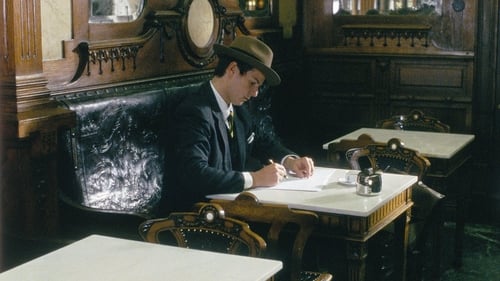
Writer
Manoel de Oliveira's autobiographical documentary about returning to his hometown.

Himself / Narrator / The Thief
Manoel de Oliveira's autobiographical documentary about returning to his hometown.

Director
Manoel de Oliveira's autobiographical documentary about returning to his hometown.
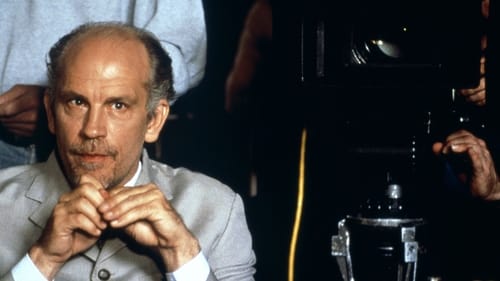
Screenplay
The comfortable daily routines of aging Parisian actor Gilbert Valence, 76, are suddenly shaken when he learns that his wife, daughter, and son-in-law have been killed in a car crash. Having to take care of his now-orphaned grandson, he struggles to go on with his lifelong acting career like he's used to. But the roles he is offered -- a flashy TV show and a hectic last-minute replacement in an English-language film of Joyce's Ulysses -- finally convince him that it's time to retire.

Director
The comfortable daily routines of aging Parisian actor Gilbert Valence, 76, are suddenly shaken when he learns that his wife, daughter, and son-in-law have been killed in a car crash. Having to take care of his now-orphaned grandson, he struggles to go on with his lifelong acting career like he's used to. But the roles he is offered -- a flashy TV show and a hectic last-minute replacement in an English-language film of Joyce's Ulysses -- finally convince him that it's time to retire.

Writer
The story of Father Antonio Vieira, a 17th-century Portuguese priest who lived in Brazil and worked for better treatment of the Indians and to abolish slavery.

Director
The story of Father Antonio Vieira, a 17th-century Portuguese priest who lived in Brazil and worked for better treatment of the Indians and to abolish slavery.

Screenplay
A well-bred, lovely, spiritual, sad young woman marries an attentive physician who loves her. She feels affection but no love. Soon after, without design, she falls in love with Pedro Abrunhosa, a poet and performance artist. He also loves her. She keeps her distance from him, confessing her love to a friend who is a nun and, later, to her husband. Hunger for her love and jealousy consume him; she attends him as he wastes away. With his death, she can marry and express her passion, but what she does and how she explains herself, particularly to her cloistered friend, is at the heart of the film. Glimpses of convent life and of Abrunhosa on stage give contrast and mute comment.

Director
A well-bred, lovely, spiritual, sad young woman marries an attentive physician who loves her. She feels affection but no love. Soon after, without design, she falls in love with Pedro Abrunhosa, a poet and performance artist. He also loves her. She keeps her distance from him, confessing her love to a friend who is a nun and, later, to her husband. Hunger for her love and jealousy consume him; she attends him as he wastes away. With his death, she can marry and express her passion, but what she does and how she explains herself, particularly to her cloistered friend, is at the heart of the film. Glimpses of convent life and of Abrunhosa on stage give contrast and mute comment.

Tango Dancer
An anthology film drama featuring a poetic mirror structure based on existential identity. In "The Immortals," adapted from a Helder Prista Monteiro play, two famous doctors, an 80-year-old father, and his 60-year-old son, contemplate senility and death. "Suzy," from an Antonio Patricio story, is set in the '30s when a young courtesan dies on the operating table. "Mother of the River" is from an Agustina Bessa-Luis fable about eternal life.

Screenplay
An anthology film drama featuring a poetic mirror structure based on existential identity. In "The Immortals," adapted from a Helder Prista Monteiro play, two famous doctors, an 80-year-old father, and his 60-year-old son, contemplate senility and death. "Suzy," from an Antonio Patricio story, is set in the '30s when a young courtesan dies on the operating table. "Mother of the River" is from an Agustina Bessa-Luis fable about eternal life.

Director
An anthology film drama featuring a poetic mirror structure based on existential identity. In "The Immortals," adapted from a Helder Prista Monteiro play, two famous doctors, an 80-year-old father, and his 60-year-old son, contemplate senility and death. "Suzy," from an Antonio Patricio story, is set in the '30s when a young courtesan dies on the operating table. "Mother of the River" is from an Agustina Bessa-Luis fable about eternal life.
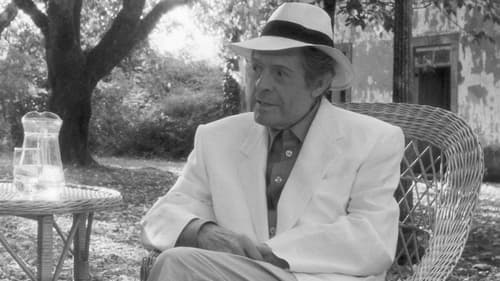
Self
In 1996, Marcello Mastroianni talks about life as an actor. It's an anecdotal and philosophical memoir, moving from topic to topic, fully conscious of a man "of a certain age" looking back. He tells stories about Fellini and De Sica's direction, of using irony in performances, of constantly working (an actor tries to find himself in characters). He's diffident about prizes, celebrates Rome and Paris, salutes Naples and its people. He answers the question, why make bad films; recalls his father and grandfather, carpenters, his mother, deaf in her old age, and his brother, a film editor; he's modest about his looks. In repose, time's swift passage holds Mastroianni inward gaze.
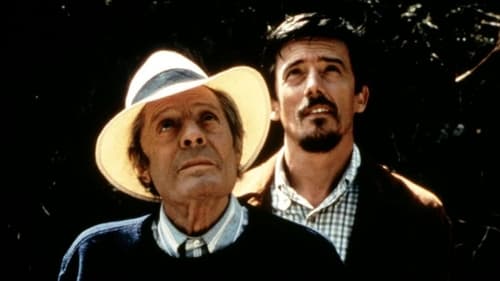
Writer
Manoel is an aging film director who travels with the film crew through Portugal in search of the origins of Afonso, a famous French actor whose father emigrated from Portugal to France and in process remembers his own youth.

Driver
Manoel is an aging film director who travels with the film crew through Portugal in search of the origins of Afonso, a famous French actor whose father emigrated from Portugal to France and in process remembers his own youth.

Director
Manoel is an aging film director who travels with the film crew through Portugal in search of the origins of Afonso, a famous French actor whose father emigrated from Portugal to France and in process remembers his own youth.

Screenplay
This French language drama from Portuguese filmmaker Manoel de Oliveira takes an ironic look at the pretentiousness of international jet-setters while simultaneously examining an obsessive romantic relationship between an aging Lothario and a beautiful married woman. The tale begins at a garden party in a lovely villa in the Azores held by Rogerio and Leonor for handsome, middle-aged Michel and his mistress Irene, a noted Greek movie star. The guests aren't there long before an obvious attraction between Leonor and Michel prompts them to head for a private beach (their tryst, if there was one, occurs off-camera). Five years later, the foursome again meet for a garden party and once again they pair off after spending much time discussing gender differences, emotion, social insight and exchanging witty bon mots.

Director
This French language drama from Portuguese filmmaker Manoel de Oliveira takes an ironic look at the pretentiousness of international jet-setters while simultaneously examining an obsessive romantic relationship between an aging Lothario and a beautiful married woman. The tale begins at a garden party in a lovely villa in the Azores held by Rogerio and Leonor for handsome, middle-aged Michel and his mistress Irene, a noted Greek movie star. The guests aren't there long before an obvious attraction between Leonor and Michel prompts them to head for a private beach (their tryst, if there was one, occurs off-camera). Five years later, the foursome again meet for a garden party and once again they pair off after spending much time discussing gender differences, emotion, social insight and exchanging witty bon mots.

"Enjoying an old port wine together, I was talking with Manoël about the bridges of Douro, and immediately we were of the same opinion: of all these bridges, the great work of art in the capital of modern architecture is the bridge that Gustave Eiffel had done before building his tower of Paris. In less than five minutes, the project was constructed: Manoël was writing a poem that we will film with our friends Bernard, Jérôme, and François. And our dreams of childhood were made in less than a week by going back and forth to the banks of Douro, on foot, then by car, then in a helicopter, back to where we were following these marvelous clouds, with Manoël and me screaming stanzas of a poem inspired by the wind, the water, and friendship." - Jean Rouch

Screenplay
"Enjoying an old port wine together, I was talking with Manoël about the bridges of Douro, and immediately we were of the same opinion: of all these bridges, the great work of art in the capital of modern architecture is the bridge that Gustave Eiffel had done before building his tower of Paris. In less than five minutes, the project was constructed: Manoël was writing a poem that we will film with our friends Bernard, Jérôme, and François. And our dreams of childhood were made in less than a week by going back and forth to the banks of Douro, on foot, then by car, then in a helicopter, back to where we were following these marvelous clouds, with Manoël and me screaming stanzas of a poem inspired by the wind, the water, and friendship." - Jean Rouch

Director
"Enjoying an old port wine together, I was talking with Manoël about the bridges of Douro, and immediately we were of the same opinion: of all these bridges, the great work of art in the capital of modern architecture is the bridge that Gustave Eiffel had done before building his tower of Paris. In less than five minutes, the project was constructed: Manoël was writing a poem that we will film with our friends Bernard, Jérôme, and François. And our dreams of childhood were made in less than a week by going back and forth to the banks of Douro, on foot, then by car, then in a helicopter, back to where we were following these marvelous clouds, with Manoël and me screaming stanzas of a poem inspired by the wind, the water, and friendship." - Jean Rouch
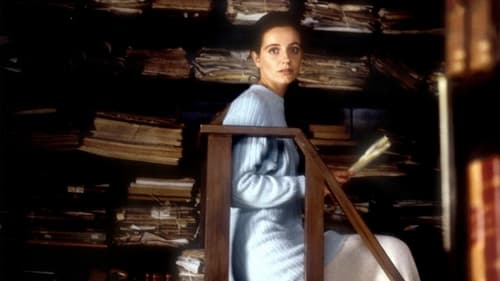
Editor
The journey of Michael Padovic, an American professor who arrives with his wife, Helene, at a Portuguese convent where he expects to find the documents needed to prove his theory: Shakespeare was born in Spain; not in England.

Writer
The journey of Michael Padovic, an American professor who arrives with his wife, Helene, at a Portuguese convent where he expects to find the documents needed to prove his theory: Shakespeare was born in Spain; not in England.

Director
The journey of Michael Padovic, an American professor who arrives with his wife, Helene, at a Portuguese convent where he expects to find the documents needed to prove his theory: Shakespeare was born in Spain; not in England.
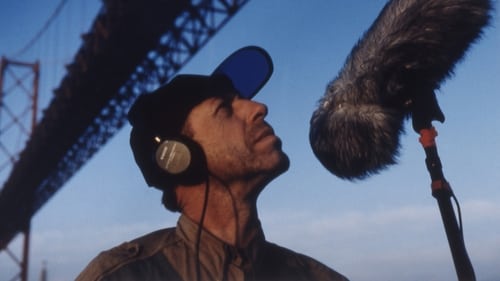
Himself
Lisbon Story is Wim Wenders' homage to Lisbon and films. A sound engineer obtains a mysterious postcard from a friend who at the moment is filming a film in Lisbon. He sets out across Europe to find him and help him.

Editor
A blind beggar is robbed of his chest of money. The theft leads to a dramatic situation in the street where he begs every day.

Writer
A blind beggar is robbed of his chest of money. The theft leads to a dramatic situation in the street where he begs every day.

Adaptation
A blind beggar is robbed of his chest of money. The theft leads to a dramatic situation in the street where he begs every day.

Director
A blind beggar is robbed of his chest of money. The theft leads to a dramatic situation in the street where he begs every day.

Paulo Rocha catches up with his “beloved subject” in Porto, where he made Douro, Faina Fluvial in 1929, and where today Oliveira reminisces about the figure of his father, his first experience of cinema as an actor, his past as a racing driver, his first technical experiences…
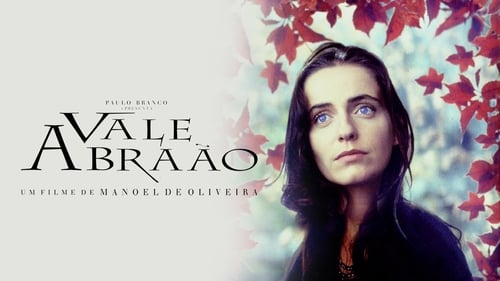
Editor
Ema is a very attractive but innocent girl, so pretty that cars crash in her presence. Young marries Dr. Carlos Paiva, a father's friend, to whom she is not attracted. They move to the Valley of Abraham. Carlos loves her, but decides to sleep in a separate room to avoid waking Ema when he has to return late at night. With time she begins to feel unhappy about her marriage, so she finds a lover.

Screenplay
Ema is a very attractive but innocent girl, so pretty that cars crash in her presence. Young marries Dr. Carlos Paiva, a father's friend, to whom she is not attracted. They move to the Valley of Abraham. Carlos loves her, but decides to sleep in a separate room to avoid waking Ema when he has to return late at night. With time she begins to feel unhappy about her marriage, so she finds a lover.

Director
Ema is a very attractive but innocent girl, so pretty that cars crash in her presence. Young marries Dr. Carlos Paiva, a father's friend, to whom she is not attracted. They move to the Valley of Abraham. Carlos loves her, but decides to sleep in a separate room to avoid waking Ema when he has to return late at night. With time she begins to feel unhappy about her marriage, so she finds a lover.

Editor
Portrait of the last days of the life of Portuguese writer Camilo Castelo Branco.

Screenplay
Portrait of the last days of the life of Portuguese writer Camilo Castelo Branco.

Director
Portrait of the last days of the life of Portuguese writer Camilo Castelo Branco.
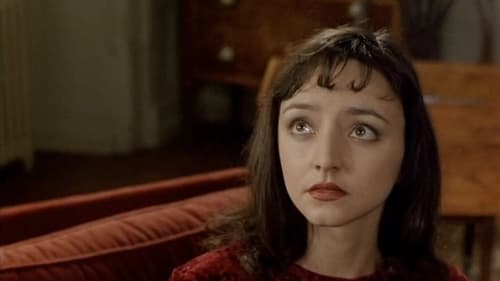
In a mental institution the patients see themselves as people like Jesus, Lázaro, Marta, Maria, Adão, Eve, Sonia, Raskolnikov, Aliosha e Ivan Karamasov, a Philosopher, a Profet, Santa Teresa d'Avila, reciting the Divine Comedy.

Director
In a mental institution the patients see themselves as people like Jesus, Lázaro, Marta, Maria, Adão, Eve, Sonia, Raskolnikov, Aliosha e Ivan Karamasov, a Philosopher, a Profet, Santa Teresa d'Avila, reciting the Divine Comedy.

Editor
In a mental institution the patients see themselves as people like Jesus, Lázaro, Marta, Maria, Adão, Eve, Sonia, Raskolnikov, Aliosha e Ivan Karamasov, a Philosopher, a Profet, Santa Teresa d'Avila, reciting the Divine Comedy.

Screenplay
In a mental institution the patients see themselves as people like Jesus, Lázaro, Marta, Maria, Adão, Eve, Sonia, Raskolnikov, Aliosha e Ivan Karamasov, a Philosopher, a Profet, Santa Teresa d'Avila, reciting the Divine Comedy.

Writer
In a mental institution the patients see themselves as people like Jesus, Lázaro, Marta, Maria, Adão, Eve, Sonia, Raskolnikov, Aliosha e Ivan Karamasov, a Philosopher, a Profet, Santa Teresa d'Avila, reciting the Divine Comedy.
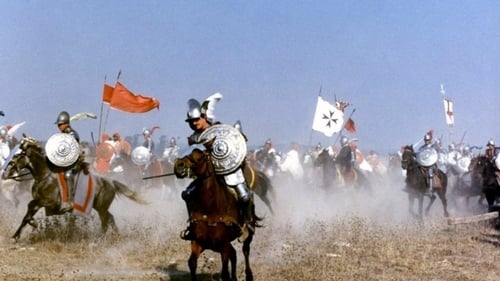
Screenplay
Episodes from entire military history of Portugal are told through flashbacks as a professorish soldier recounts them while marching through a Portuguese African colony in 1973.

Editor
Episodes from entire military history of Portugal are told through flashbacks as a professorish soldier recounts them while marching through a Portuguese African colony in 1973.

Narrator
Episodes from entire military history of Portugal are told through flashbacks as a professorish soldier recounts them while marching through a Portuguese African colony in 1973.

Director
Episodes from entire military history of Portugal are told through flashbacks as a professorish soldier recounts them while marching through a Portuguese African colony in 1973.

Director
An artistic and poetic documentary about the meaning of the Portuguese flag.
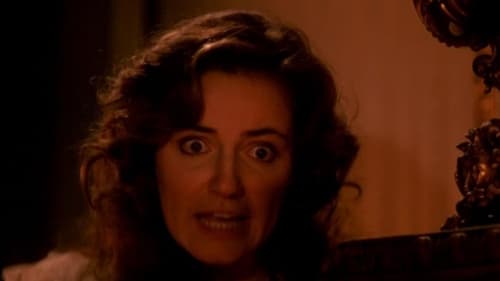
Editor
This odd film is a major representative of an even odder film genre: direct-to-celluloid opera. It was commissioned by the Portuguese master of style, director Manoel de Oliveira from composer João Paes. Musically, it ranges from 19th-century romanticism to popular, modernist and even "post-modernist" styles. In the initially tame story, a host-narrator tells the story of a wedding between the two lovebirds: Viscount d'Aveleda and the beautiful Marguerite. However, what happens in the bridal chamber is incredibly bizarre. The events after that are even stranger (the film out-does even Luis Buñuel in that department), and the wedding guests and family indulge in cannibalism, among other perversions.

Screenplay
This odd film is a major representative of an even odder film genre: direct-to-celluloid opera. It was commissioned by the Portuguese master of style, director Manoel de Oliveira from composer João Paes. Musically, it ranges from 19th-century romanticism to popular, modernist and even "post-modernist" styles. In the initially tame story, a host-narrator tells the story of a wedding between the two lovebirds: Viscount d'Aveleda and the beautiful Marguerite. However, what happens in the bridal chamber is incredibly bizarre. The events after that are even stranger (the film out-does even Luis Buñuel in that department), and the wedding guests and family indulge in cannibalism, among other perversions.

Director
This odd film is a major representative of an even odder film genre: direct-to-celluloid opera. It was commissioned by the Portuguese master of style, director Manoel de Oliveira from composer João Paes. Musically, it ranges from 19th-century romanticism to popular, modernist and even "post-modernist" styles. In the initially tame story, a host-narrator tells the story of a wedding between the two lovebirds: Viscount d'Aveleda and the beautiful Marguerite. However, what happens in the bridal chamber is incredibly bizarre. The events after that are even stranger (the film out-does even Luis Buñuel in that department), and the wedding guests and family indulge in cannibalism, among other perversions.

Screenplay
Manoel de Oliveira plays his film in three stages: the first part - a play, the second can be roughly defined as a silent film (with the behind the scenes read excerpts from Beckett works), but in the end the director brilliantly performs the same material of the avant-garde exercise. Surprisingly, a joke, repeated three times, each time everything sounds fresh and develops into an almost verbatim adaptation of the biblical "Book of Job" - a spectacular point in a parable about how hard to empathize with other people's misery, when you have your own.

Director
Manoel de Oliveira plays his film in three stages: the first part - a play, the second can be roughly defined as a silent film (with the behind the scenes read excerpts from Beckett works), but in the end the director brilliantly performs the same material of the avant-garde exercise. Surprisingly, a joke, repeated three times, each time everything sounds fresh and develops into an almost verbatim adaptation of the biblical "Book of Job" - a spectacular point in a parable about how hard to empathize with other people's misery, when you have your own.

Director
A documentary following the process of sculpting in stone, from the creation to the final work of art.

Screenplay
During the century of the Spanish Gold, Doña Prouhèze, wife of a nobleman, deeply loves Don Rodrigo, who is forced to leave Spain and go to America. Meanwhile Prouhèze is sent to Africa to rule the city of Mogador. Ten years later Rodrigo leaves America and travels to Africa in search of Prouhèze to find out that she died and eventually meeting her daughter.

Director
During the century of the Spanish Gold, Doña Prouhèze, wife of a nobleman, deeply loves Don Rodrigo, who is forced to leave Spain and go to America. Meanwhile Prouhèze is sent to Africa to rule the city of Mogador. Ten years later Rodrigo leaves America and travels to Africa in search of Prouhèze to find out that she died and eventually meeting her daughter.

Director
Seventeen experts on history and arts deliver brief lessons on their favorite subjects, considered the most relevant to cover nine hundred years of Portuguese culture. The camera shows from a distance, or in minute detail, the monuments or art pieces considered, or even the texts discussed by the narrators, reenacted on stage or recited by actors.

Director
Part of a series in which foreign filmmakers portray a region or town in France. Manoel de Oliveira looks at Nice.

Padre
The film was to be a documentary, but evolved during production to a fictional film. It nevertheless adheres strictly to the poems and letters exchanged by two of the most outstanding names of the Modernist Movement, Fernando Pessoa (in Lisbon) and Mário de Sá-Carneiro (in Paris). Their endless conversation was dramatically and suddenly terminated.
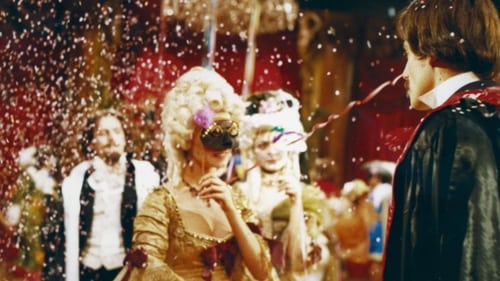
Screenplay
The life of a young man, son of an English officer who lets himself become a prisoner of love resulting in fatalism and disgrace.

Director
The life of a young man, son of an English officer who lets himself become a prisoner of love resulting in fatalism and disgrace.

N°102
Reel 11 of Gérard Courant's on-going Cinematon series.
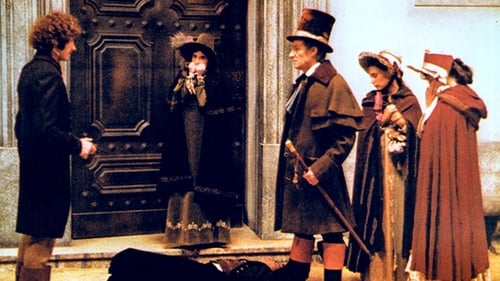
Narrator (voice)
A story about doomed love between two people from different worlds and the impact in their lives.

Screenplay
A story about doomed love between two people from different worlds and the impact in their lives.

Director
A story about doomed love between two people from different worlds and the impact in their lives.
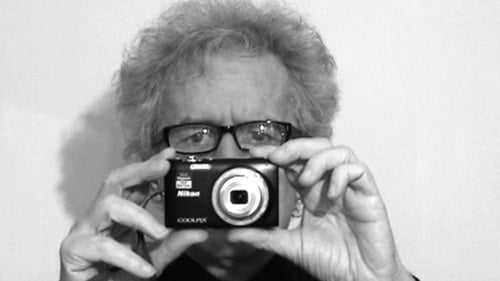
N°102
Cinématon is a 156-hour long experimental film by French director Gérard Courant. It was the longest film ever released until 2011. Composed over 36 years from 1978 until 2006, it consists of a series of over 2,821 silent vignettes (cinématons), each 3 minutes and 25 seconds long, of various celebrities, artists, journalists and friends of the director, each doing whatever they want for the allotted time. Subjects of the film include directors Barbet Schroeder, Nagisa Oshima, Volker Schlöndorff, Ken Loach, Benjamin Cuq, Youssef Chahine, Wim Wenders, Joseph Losey, Jean-Luc Godard, Samuel Fuller and Terry Gilliam, chess grandmaster Joël Lautier, and actors Roberto Benigni, Stéphane Audran, Julie Delpy and Lesley Chatterley. Gilliam is featured eating a 100-franc note, while Fuller smokes a cigar. Courant's favourite subject was a 7-month-old baby. The film was screened in its then-entirety in Avignon in November 2009 and was screened in Redondo Beach, CA on April 9, 2010.
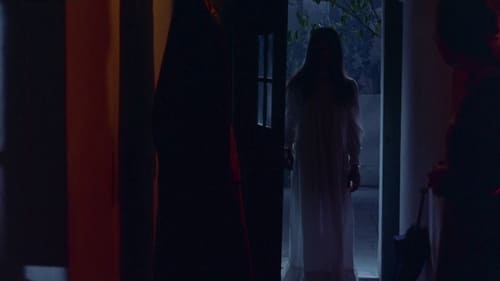
Director
A young girl, Benilde, so protected by her religious family that she seemingly knows nothing about procreation, insists that her mysterious pregnancy is a miracle; however, her distressed bourgeois family decides that Benilde has lost her mind.

Editor
A young girl, Benilde, so protected by her religious family that she seemingly knows nothing about procreation, insists that her mysterious pregnancy is a miracle; however, her distressed bourgeois family decides that Benilde has lost her mind.

Screenplay
A young girl, Benilde, so protected by her religious family that she seemingly knows nothing about procreation, insists that her mysterious pregnancy is a miracle; however, her distressed bourgeois family decides that Benilde has lost her mind.

Editor
This is an intriguing avant-garde look at what motivates the leisurely classes in Portugal, for better or worse, by director Manoel de Oliveira. Set in a spacious country home peopled with a wide-ranging cast of characters, the drama begins as the friends of a widow come to console her on the loss of her husband. But at one point, the widow goes upstairs, encounters her husband, and is faced with his accusations about the past. This event and others provide the means of revealing the petty, self-serving, egocentric, and romantic pursuits of the melange of people in the house. - Eleanor Mannikka, Rovi

Producer
This is an intriguing avant-garde look at what motivates the leisurely classes in Portugal, for better or worse, by director Manoel de Oliveira. Set in a spacious country home peopled with a wide-ranging cast of characters, the drama begins as the friends of a widow come to console her on the loss of her husband. But at one point, the widow goes upstairs, encounters her husband, and is faced with his accusations about the past. This event and others provide the means of revealing the petty, self-serving, egocentric, and romantic pursuits of the melange of people in the house. - Eleanor Mannikka, Rovi

Screenplay
This is an intriguing avant-garde look at what motivates the leisurely classes in Portugal, for better or worse, by director Manoel de Oliveira. Set in a spacious country home peopled with a wide-ranging cast of characters, the drama begins as the friends of a widow come to console her on the loss of her husband. But at one point, the widow goes upstairs, encounters her husband, and is faced with his accusations about the past. This event and others provide the means of revealing the petty, self-serving, egocentric, and romantic pursuits of the melange of people in the house. - Eleanor Mannikka, Rovi

Director
This is an intriguing avant-garde look at what motivates the leisurely classes in Portugal, for better or worse, by director Manoel de Oliveira. Set in a spacious country home peopled with a wide-ranging cast of characters, the drama begins as the friends of a widow come to console her on the loss of her husband. But at one point, the widow goes upstairs, encounters her husband, and is faced with his accusations about the past. This event and others provide the means of revealing the petty, self-serving, egocentric, and romantic pursuits of the melange of people in the house. - Eleanor Mannikka, Rovi

Writer
Documentary by Manoel de Oliveira filmed in 1965 and exhibited in 2008 in the Venice Film Festival.

Director
Documentary by Manoel de Oliveira filmed in 1965 and exhibited in 2008 in the Venice Film Festival.

Sound Designer
The camera shows the vivid paintings by late Júlio Régio, with a narrative by his brother, while guitar tunes underline the mood and rhythm of the cinematography.

Editor
The camera shows the vivid paintings by late Júlio Régio, with a narrative by his brother, while guitar tunes underline the mood and rhythm of the cinematography.

Director of Photography
The camera shows the vivid paintings by late Júlio Régio, with a narrative by his brother, while guitar tunes underline the mood and rhythm of the cinematography.

Producer
The camera shows the vivid paintings by late Júlio Régio, with a narrative by his brother, while guitar tunes underline the mood and rhythm of the cinematography.

Screenplay
The camera shows the vivid paintings by late Júlio Régio, with a narrative by his brother, while guitar tunes underline the mood and rhythm of the cinematography.

Director
The camera shows the vivid paintings by late Júlio Régio, with a narrative by his brother, while guitar tunes underline the mood and rhythm of the cinematography.

Director
A look at the life in the small village Vilaverdinho, in the North of Portugal. Oliveira made this film as a present for a friend. It has only been publicly shown once.

Director of Photography
Two friends decide to go hunting but without guns, so that no accident will happen. As they stroll and talk, one of them falls into a hole in a hidden marshland. His friend runs away, and manages to gather a number of men that were in the vicinity. They form a human chain to pull the victim out, but their affliction mounts, as they have no strategy for doing it, and they can't understand each other.

Sound Designer
Two friends decide to go hunting but without guns, so that no accident will happen. As they stroll and talk, one of them falls into a hole in a hidden marshland. His friend runs away, and manages to gather a number of men that were in the vicinity. They form a human chain to pull the victim out, but their affliction mounts, as they have no strategy for doing it, and they can't understand each other.

Editor
Two friends decide to go hunting but without guns, so that no accident will happen. As they stroll and talk, one of them falls into a hole in a hidden marshland. His friend runs away, and manages to gather a number of men that were in the vicinity. They form a human chain to pull the victim out, but their affliction mounts, as they have no strategy for doing it, and they can't understand each other.

Producer
Two friends decide to go hunting but without guns, so that no accident will happen. As they stroll and talk, one of them falls into a hole in a hidden marshland. His friend runs away, and manages to gather a number of men that were in the vicinity. They form a human chain to pull the victim out, but their affliction mounts, as they have no strategy for doing it, and they can't understand each other.

Writer
Two friends decide to go hunting but without guns, so that no accident will happen. As they stroll and talk, one of them falls into a hole in a hidden marshland. His friend runs away, and manages to gather a number of men that were in the vicinity. They form a human chain to pull the victim out, but their affliction mounts, as they have no strategy for doing it, and they can't understand each other.

Director
Two friends decide to go hunting but without guns, so that no accident will happen. As they stroll and talk, one of them falls into a hole in a hidden marshland. His friend runs away, and manages to gather a number of men that were in the vicinity. They form a human chain to pull the victim out, but their affliction mounts, as they have no strategy for doing it, and they can't understand each other.

Nineteen-year-old Julio heads to Lisbon from the provinces and gets a job as a shoemaker for his uncle Raul. But when he meets Ilda, a confident young housemaid who becomes a regular shop visitor, his working-class values collide with the bourgeois trappings of modern life.

Sound Designer
Local people of Curalha, a small village, keep a tradition of representing the Passion of Jesus, according to a 16th century text.

Editor
Local people of Curalha, a small village, keep a tradition of representing the Passion of Jesus, according to a 16th century text.

Director of Photography
Local people of Curalha, a small village, keep a tradition of representing the Passion of Jesus, according to a 16th century text.

Producer
Local people of Curalha, a small village, keep a tradition of representing the Passion of Jesus, according to a 16th century text.

Screenplay
Local people of Curalha, a small village, keep a tradition of representing the Passion of Jesus, according to a 16th century text.

Director
Local people of Curalha, a small village, keep a tradition of representing the Passion of Jesus, according to a 16th century text.

Sound Designer
Each day, Man must work around the clock to produce and acquire bread: throwing the seeds into earth, helping the breeding of the corn, the corn's recolt, transport to the mills - traditional or industrial ones -, manipulation of the flour into actual bread, transport to a variety of locations and consumers. And then, after the consumption, the cycle restarts.

Editor
Each day, Man must work around the clock to produce and acquire bread: throwing the seeds into earth, helping the breeding of the corn, the corn's recolt, transport to the mills - traditional or industrial ones -, manipulation of the flour into actual bread, transport to a variety of locations and consumers. And then, after the consumption, the cycle restarts.

Director of Photography
Each day, Man must work around the clock to produce and acquire bread: throwing the seeds into earth, helping the breeding of the corn, the corn's recolt, transport to the mills - traditional or industrial ones -, manipulation of the flour into actual bread, transport to a variety of locations and consumers. And then, after the consumption, the cycle restarts.

Producer
Each day, Man must work around the clock to produce and acquire bread: throwing the seeds into earth, helping the breeding of the corn, the corn's recolt, transport to the mills - traditional or industrial ones -, manipulation of the flour into actual bread, transport to a variety of locations and consumers. And then, after the consumption, the cycle restarts.

Screenplay
Each day, Man must work around the clock to produce and acquire bread: throwing the seeds into earth, helping the breeding of the corn, the corn's recolt, transport to the mills - traditional or industrial ones -, manipulation of the flour into actual bread, transport to a variety of locations and consumers. And then, after the consumption, the cycle restarts.

Director
Each day, Man must work around the clock to produce and acquire bread: throwing the seeds into earth, helping the breeding of the corn, the corn's recolt, transport to the mills - traditional or industrial ones -, manipulation of the flour into actual bread, transport to a variety of locations and consumers. And then, after the consumption, the cycle restarts.
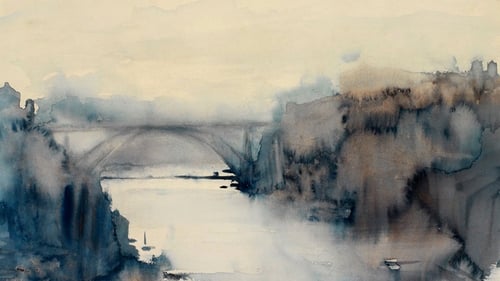
Editor
The painter António Cruz wanders around the city of Porto painting what he sees: old and modern buildings, people arriving and leaving work in the factories, children playing. The impressionist realism of Cruz’s drawings dissolves into Oliveira’s vision of Porto, which at the same time portrays the painter and his work.

Director of Photography
The painter António Cruz wanders around the city of Porto painting what he sees: old and modern buildings, people arriving and leaving work in the factories, children playing. The impressionist realism of Cruz’s drawings dissolves into Oliveira’s vision of Porto, which at the same time portrays the painter and his work.

Producer
The painter António Cruz wanders around the city of Porto painting what he sees: old and modern buildings, people arriving and leaving work in the factories, children playing. The impressionist realism of Cruz’s drawings dissolves into Oliveira’s vision of Porto, which at the same time portrays the painter and his work.

Screenplay
The painter António Cruz wanders around the city of Porto painting what he sees: old and modern buildings, people arriving and leaving work in the factories, children playing. The impressionist realism of Cruz’s drawings dissolves into Oliveira’s vision of Porto, which at the same time portrays the painter and his work.

Director
The painter António Cruz wanders around the city of Porto painting what he sees: old and modern buildings, people arriving and leaving work in the factories, children playing. The impressionist realism of Cruz’s drawings dissolves into Oliveira’s vision of Porto, which at the same time portrays the painter and his work.

Editor
Two schoolboys, Carlitos and Eduardo, fight for the affection of a girl, Terezhina.

Co-Producer
Two schoolboys, Carlitos and Eduardo, fight for the affection of a girl, Terezhina.

Screenplay
Two schoolboys, Carlitos and Eduardo, fight for the affection of a girl, Terezhina.

Director
Two schoolboys, Carlitos and Eduardo, fight for the affection of a girl, Terezhina.

Sound
Short documentary about the town of Famalicão, in the North of Portugal.

Writer
Short documentary about the town of Famalicão, in the North of Portugal.

Director
Short documentary about the town of Famalicão, in the North of Portugal.

Executive Producer
The film exhibited the community and the beach, "how I new and it was shown to me" (Manoel de Oliveira) by the Meneres family, that had a house in Miramar. The film is currently lost.

Editor
The film exhibited the community and the beach, "how I new and it was shown to me" (Manoel de Oliveira) by the Meneres family, that had a house in Miramar. The film is currently lost.

Screenplay
The film exhibited the community and the beach, "how I new and it was shown to me" (Manoel de Oliveira) by the Meneres family, that had a house in Miramar. The film is currently lost.

Director
The film exhibited the community and the beach, "how I new and it was shown to me" (Manoel de Oliveira) by the Meneres family, that had a house in Miramar. The film is currently lost.

Writer
Reflecting the filmmaker's passion for automobiles, who in his youth participated in car races, the film portrays the attempt to manufacture a new model in the Ford factory in the city of Porto.

Director
Reflecting the filmmaker's passion for automobiles, who in his youth participated in car races, the film portrays the attempt to manufacture a new model in the Ford factory in the city of Porto.

Director of Photography
A series of images documenting the floods of the river Tagus. This film has been recovered and made available by the Cinemateca Portuguesa.

Director
A series of images documenting the floods of the river Tagus. This film has been recovered and made available by the Cinemateca Portuguesa.

Carlos
Vasco is a medical student in Lisbon, supported by his rich aunts, whom he had falsely told he had already graduated. In fact, he devotes himself to a bohemian life, preferring the popular fairs and pretty women, especially Alice, a seamstress from the Castelinhos quarter, which rather upsets her ambitious father, tailor Caetano, who is familiar with Vasco's debts. After failing yet another final exam, he is surprised by his aunts' announcement that they will visit him in Lisbon to see his practice.

Screenplay
A look at various statues in the city of Lisbon. This film is incomplete and was distributed against the will of the director.

Director of Photography
A look at various statues in the city of Lisbon. This film is incomplete and was distributed against the will of the director.

Director
A look at various statues in the city of Lisbon. This film is incomplete and was distributed against the will of the director.

Writer
Filmed with the same camera and the film stock remains of Douro, Faina Fluvial, portrays the inauguration of the hydroelectric power plant of Ermal, owned by Manoel de Oliveira's father.

Director
Filmed with the same camera and the film stock remains of Douro, Faina Fluvial, portrays the inauguration of the hydroelectric power plant of Ermal, owned by Manoel de Oliveira's father.

Editor
Short silent documentary from 1931 about those working on the River Douro in Oporto.

Writer
Short silent documentary from 1931 about those working on the River Douro in Oporto.

Director
Short silent documentary from 1931 about those working on the River Douro in Oporto.

Aninhas (Aida Lupo), a paralyzed girl, asks for a miracle from the saint of her devotion, Our Lady of Lourdes, at the chapel of Penha (Guimarães), but her prayer is not heard - She turns her devotion to the Blessed Virgin directly, and joins the multitude that goes on a pilgrimage to the village where, ten years before, the Virgin Mary is said to have appeared to three child sheepherders.

Director
Manoel de Oliveira's homage to Vila do Conde, with a poem by José Régio. It was shot in 1965, but only completed in 2008.
